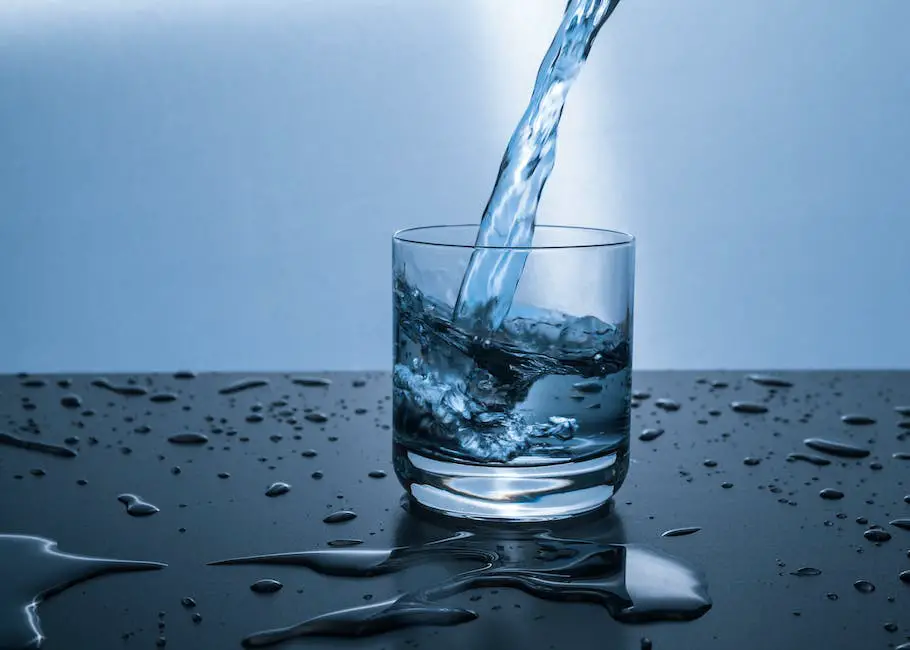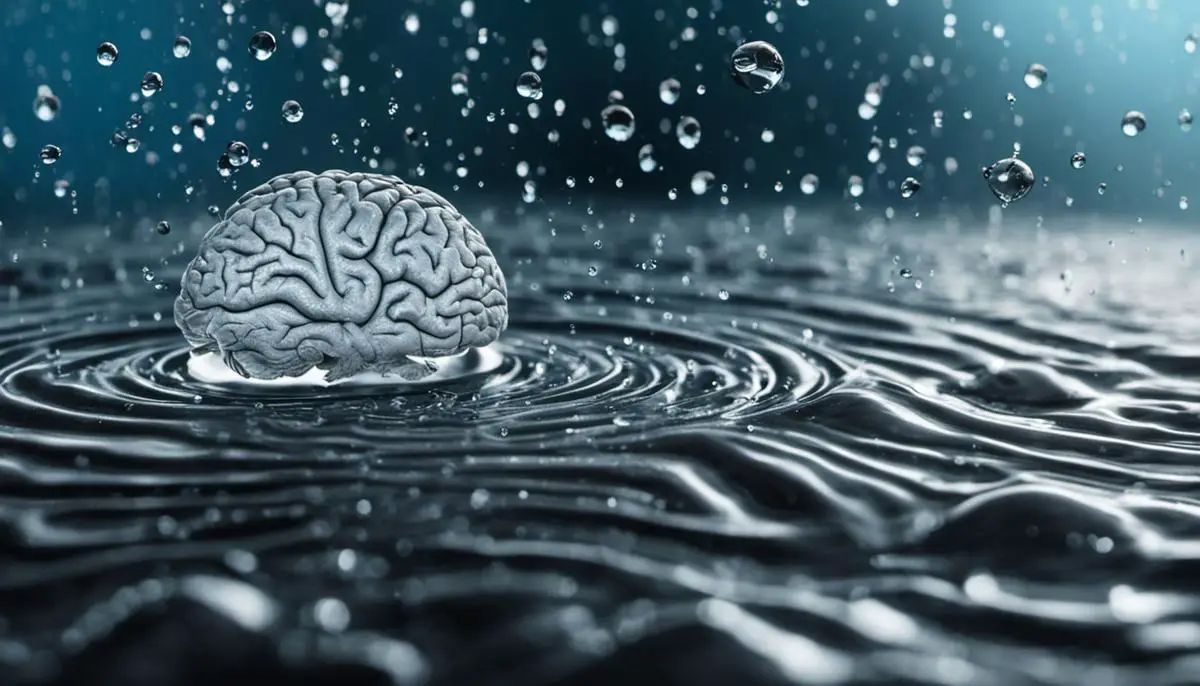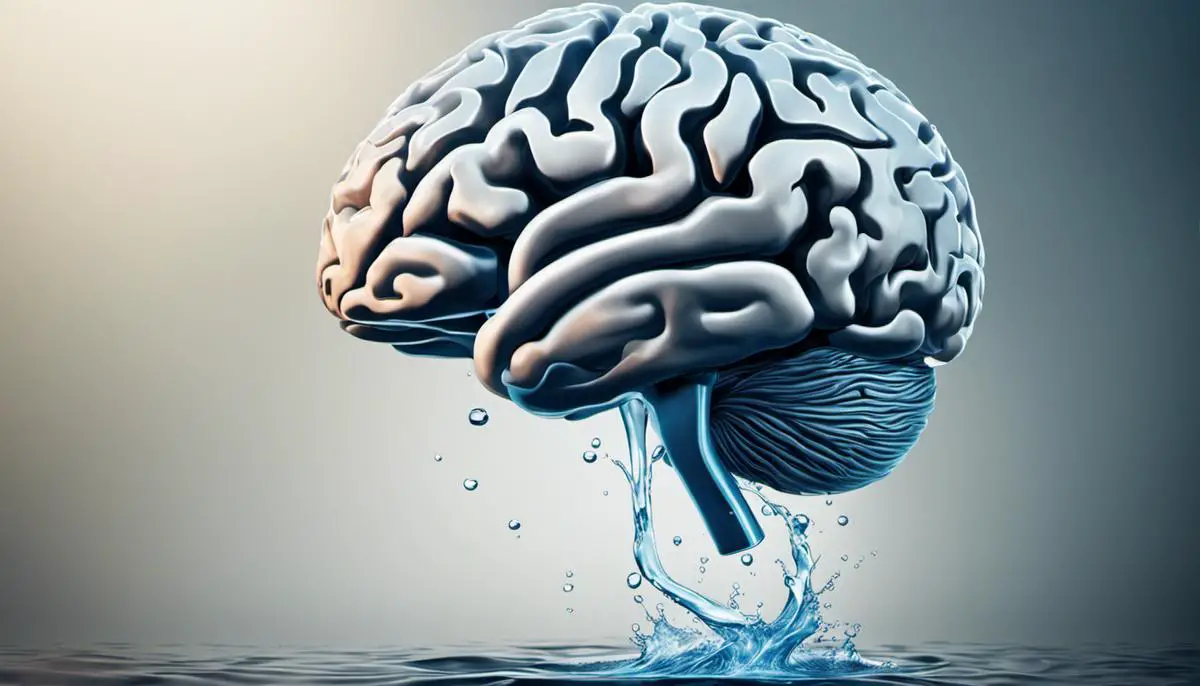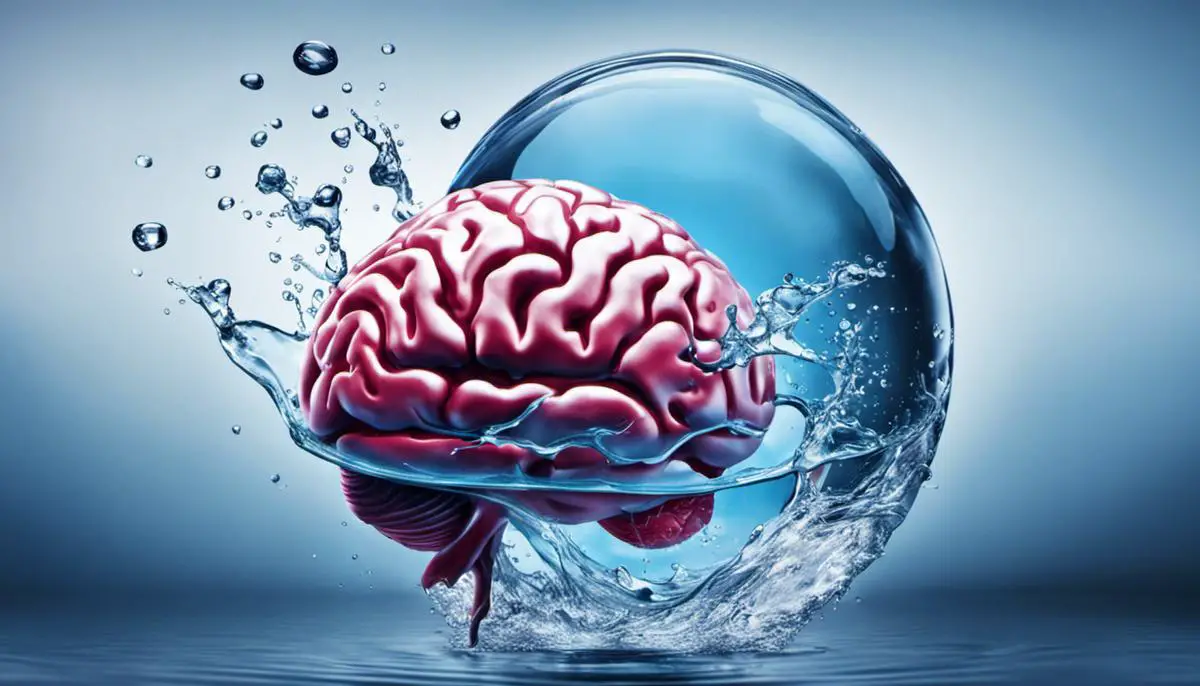Hydration plays a pivotal, yet often underrated, role in maintaining our overall health, and, importantly, in sustaining optimal brain functions. With nearly 75% of the human brain composed of water, it is clear that this ubiquitous, life-giving fluid is fundamental to our cognitive abilities and overall neurological health. This covers aspects ranging from memory retention and focus, to neuron functionality and neurotransmission, water’s role is intricate and multifaceted. Additionally, we delve into what happens when our brains do not receive adequate hydration, exploring symptoms and long-term effects of dehydration. Finally, we provide evidence-based recommendations on daily water intake, with considerations of various influencing factors, truly underscoring the integral role that water plays in our neurological wellbeing.
Importance of Water for Brain Function
The Role of Water in Brain Function
Water, making up about 75% of our brain by mass, plays an essential role in stimulating brain function and maintaining brain health. Neglecting adequate hydration can lead to structural changes in key areas of the brain, which can then impact cognition and overall brain performance. It regulates the balance of body temperature and supplies essential nutrients to the brain for its normal functioning.
Water Stimulates Biochemical Reactions
Water is paramount in our body’s numerous biochemical reactions. It aids in the synthesis of neurotransmitters such as serotonin and melatonin, which are essential for mood regulation and sleep pattern maintenance. It also supports the production of hormones that manage daily bodily functions. A reduction of water levels in the body can therefore disrupt these important biochemical reactions, potentially resulting in mental fatigue and mood swings.
Role in Neuron Function
Water has a direct influence on neuron function, the vital units of the brain. These nerve cells are responsible for transmitting information within the brain and from the brain to the rest of the body. The neurons function optimally in a well-hydrated environment, enabling faster and more efficient communication of messages. However, dehydration can slow down the speed of this communication, reducing the brain’s effectiveness and efficiency.
Water as a Medium for Electrical Impulses
Water is also crucial for the transmission of electrical impulses in the brain. These impulses are the rapid signals that parts of the brain use to communicate with each other. They facilitate everyday cognitive processes such as memory processing, concentration, and general cognition. Hydration ensures that these transmissions occur smoothly and efficiently, supporting optimal brain performance.
Water, Memory, and Concentration
Studies have shown that even mild dehydration can impair memory and concentration. This can result in symptoms like forgetfulness, difficulty concentrating, and decreased alertness – all of which can impact daily life and productivity. When well hydrated, the brain is well supplied with oxygen and works effectively, resulting in clear thinking, good concentration, and robust memory function.
Water and Overall Brain Health
Consistent water consumption is essential to brain health maintenance. It helps in developing and restoring brain cells, defending against damage and diseases, and staving off cognitive decline. Further, it contributes to effective waste removal from the brain, a crucial factor in reducing the risk of neurodegenerative diseases like dementia and Alzheimer’s.
The Importance of Hydration
Ensuring optimal hydration is a straightforward yet incredibly crucial approach to enhancing our brain health and cognitive performance. Water plays several indispensable roles in our body, including facilitating biochemical reactions, powering neuron function, enabling the transmission of electrical impulses and boosting memory and concentration. Adequate and regular water intake stands out as a primary health habit for individuals of all ages and walks of life.

Dehydration’s Impact on the Brain
The Effects of Dehydration on our Brain
Research has shown that dehydration, or insufficient water intake, can result in a myriad of negative impacts on the brain and our overall health. Comprising about 75% water, the human brain depends heavily on proper hydration to function at its best. Lack of water can lead to both physical and cognitive symptoms that interfere with our daily lives.
Headaches are among the most frequent dehydration-induced physical symptoms. When our water intake falls short, the brain may temporarily shrink due to fluid loss. This contraction can incite tension and inflammation in the brain tissue and blood vessels surrounding it, resulting in a headache due to dehydration.
Fatigue, another common symptom, is also linked to dehydration. A shortage of water can decrease the body’s blood volume, thereby reducing the amount of oxygen that reaches the brain. This deficit forces the heart to work harder to supply the brain with the oxygen and nutrients it needs, which can result in feelings of tiredness and lethargy.
Cognitive Symptoms Linked to Dehydration
A study published in The Journal of Nutrition showed that even mild dehydration can impact cognitive function, causing difficulties with concentration, alertness, and short-term memory. When the body is dehydrated, the brain has to work harder than usual to perform the same tasks, which can lead to perceived difficulty in concentration and decreased cognitive performance.
Chronic dehydration can affect mood and overall mental health as well. Research indicates that chronic mild dehydration may play a role in the development of depression and anxiety since the brain requires adequate hydration to produce mood-regulating hormones like serotonin.
Long-term Neurological Issues Due to Dehydration
Chronic dehydration could potentially lead to severe, long-term neurological issues if left untreated. Extended periods of dehydration can limit the brain’s growth and development in childhood and accelerate the brain’s aging process in adulthood. Moreover, prolonged dehydration may increase the risk of certain neurological disorders, such as dementia and Alzheimer’s disease.
On a cellular level, neurons in the brain rely on a balanced amount of water and various electrolytes to function properly. Dehydration disrupts this balance, leading to cellular dysfunction that could potentially contribute to long-term damage.
Maintaining good brain health and cognitive function is strongly tied to ensuring adequate water consumption. As individuals, our hydration needs differ, influenced by factors like age, climate, and the physical activities we engage in. A general guideline to adhere to is the consumption of at least eight 8-ounce glasses of water each day. However, listening to your body’s subtle signals such as thirst feelings and the coloration of your urine is crucial to determining if your water intake is sufficient.

Recommended Water Intake for Optimal Brain Function
The Importance of Hydration for Brain Health
Water, as an indispensable nutrient, plays a significant role in overall health, particularly in relation to brain function. The human brain is roughly 75% water, meaning even slight dehydration can negatively affect cognitive performance. In fact, your water consumption has a bearing on vital brain functions like alertness, concentration, and short-term memory.
Recommended Daily Water Intake
A commonly used guideline is to drink at least eight 8-ounce glasses of water a day, which equals about 2 liters, or half a gallon. However, this is not a one-size-fits-all recommendation. Factors like body size, activity level, climate, and health conditions should be taken into consideration when estimating individual water needs. For instance, individuals involved in strenuous physical activities or those living in hot climates may need more fluids to prevent dehydration.
Factoring in Physical Activity
Physical activity increases the body’s need for water. For those engaged in moderate exercise, it is advisable to drink an additional 1.5 to 2.5 cups of water. Intense activities involving substantial sweating may require further intake. It’s recommended to drink fluids before, during, and after physical activity to prevent dehydration.
Climate Impact on Hydration Needs
The climate one resides in also plays a role in hydration needs. Hot or humid weather can make you sweat and requires additional intake of fluids. Higher altitudes may also lead to increased urination and more rapid breathing, which use up more of your hydration.
Health Conditions and Hydration
Health conditions like fever, vomiting, and diarrhea cause your body to lose extra fluids and require more water intake. Certain conditions like heart disease, bladder conditions, and kidney stones may need you to take extra water. However, some conditions such as kidney and liver disease could require you to restrict your water intake.
Debunking Hydration Myths
A common myth is that only water can keep you hydrated. In reality, all fluids count toward your daily water intake, including milk, juice, soft drinks, and even coffee and tea. Many foods, especially fruits and vegetables, also contain a significant amount of water.
Another hydration myth is that if you’re thirsty, you’re already dehydrated. Thirst is an early indicator of your body’s need for more fluid and does not necessarily mean you are dehydrated.
Hydration for Optimal Brain Function
Proper hydration is necessary for delivering nutrients to the brain and for removing toxins. When the brain is fully hydrated, the exchange of nutrients and toxins is more efficient—thus improving concentration and mental alertness.
Furthermore, studies have noted a significant negative effect of dehydration on cognitive functions and mood. As such, taking in adequate fluids is a significant factor for mental performance and can be as simple as having a water bottle on hand or increasing your intake of water-rich foods.
Overall, while the exact amount of water needed can vary, staying well-hydrated is a smart move for your brain health.

It is clear that water is not just a simple necessity for bodily survival, but a crucial component for maintaining and amplifying our cognitive abilities and overall brain health. Our brain’s remarkable functions, from memory consolidation to focused concentration, are intricately linked with our hydration status. The harsh consequences of dehydration serve as a stark reminder for us to earnestly prioritize our hydration needs. Stimulating optimal brain performance is not just about engaging brain exercises or nutrient-rich diets; it must include maintaining proper hydration. Remember, understanding and following scientifically backed hydration guidelines is a fundamental step towards preserving and enhancing your brain health.
